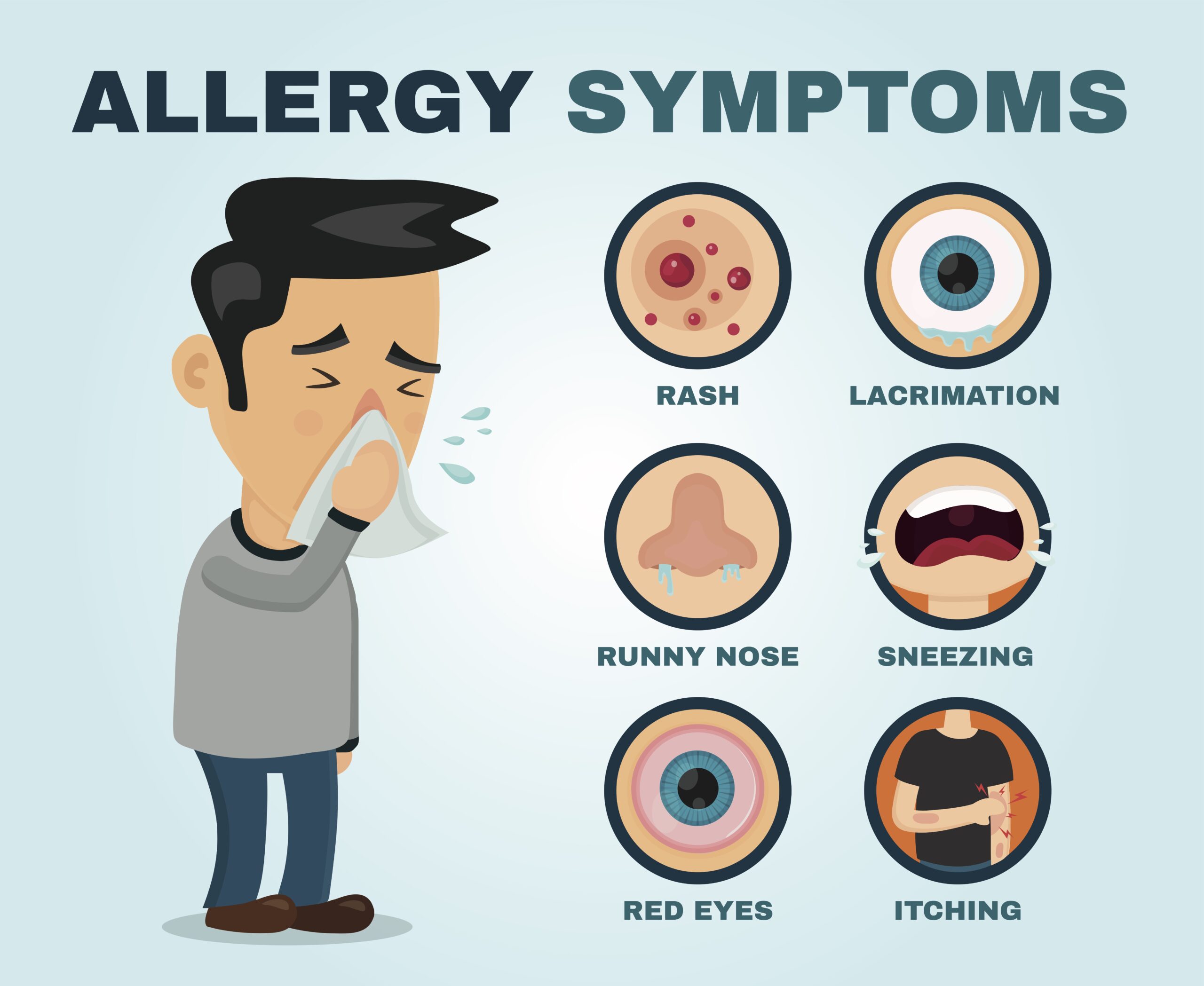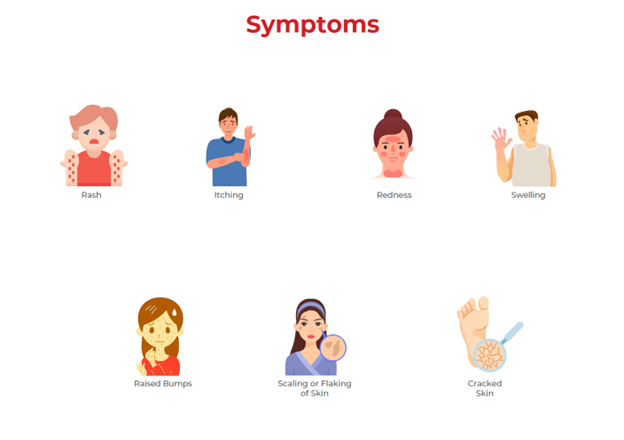Contents
- 1 Introduction
- 1.1 Understanding Seasonal Allergies
- 1.2 Impact on Health
- 1.3 Diagnosis and Consultation
- 1.4 Medication Options
- 1.5 Allergen Avoidance
- 1.6 Holistic Approaches
- 1.7 Immunotherapy
- 1.8 Lifestyle Changes
- 1.9 Children and Seasonal Allergies
- 1.10 Prindhevi Multispeciality Hospital’s Expertise
- 1.11 Expertise:
- 1.12 Managing Allergies in the Workplace
- 1.13 Seasonal Allergies and Mental Health
- 1.14 Natural Remedies
- 1.15 Conclusion
Introduction
Seasonal allergies, often synonymous with hay fever or allergic rhinitis, impact millions worldwide. For many, these allergies manifest as irritating symptoms like sneezing, itchy eyes, and nasal congestion, making routine activities challenging. At Prindhevi Multispeciality Hospital, we understand the impact of seasonal allergies on individuals’ well-being and offer comprehensive strategies for effective relief.
Understanding Seasonal Allergies
Seasonal allergies arise from the body’s immune response to environmental allergens, predominantly pollen, mold spores, and pet dander. As these allergens trigger an exaggerated immune response, symptoms like sneezing, itching, and congestion become prevalent. Understanding the specific allergens affecting an individual is crucial for tailoring an effective treatment plan.
Impact on Health
While seasonal allergies might seem like a minor inconvenience, prolonged and untreated symptoms can have broader health implications. Allergies have been linked to the development of more severe conditions, including asthma, sinusitis, and recurrent respiratory infections. Recognizing the potential health risks emphasizes the importance of proactive management.

Diagnosis and Consultation
Prindhevi Multispeciality Hospital emphasizes the significance of professional diagnosis in managing seasonal allergies. Our healthcare experts conduct thorough assessments to identify specific allergens affecting individuals. This tailored approach ensures precise treatment plans, enhancing the effectiveness of relief strategies.
-
Comprehensive Allergy Testing: Utilizing advanced diagnostic tests to pinpoint specific allergens triggering symptoms.
-
Individualized Assessment: Evaluating the patient’s medical history, lifestyle, and environmental factors to tailor a personalized treatment plan.
-
Precision in Treatment: Ensuring accuracy in diagnosis for more targeted and effective relief strategies.
Medication Options
Medications play a pivotal role in alleviating allergy symptoms. Prindhevi Multispeciality Hospital provides insights into various options, from antihistamines to nasal corticosteroids. Understanding the nuances between prescription and over-the-counter medications empowers individuals to make informed decisions regarding their allergy management.
-
Antihistamines: Exploring the mechanism of action and effectiveness in blocking histamine release.
-
Nasal Corticosteroids: Understanding how these medications reduce inflammation in the nasal passages.
-
Prescription vs. Over-the-Counter: Guidance on when a prescription might be necessary and the differences between available options.
Allergen Avoidance
Creating an allergy-friendly environment is a proactive step toward relief. Simple lifestyle changes, such as using air purifiers and keeping windows closed during peak pollen seasons, can significantly reduce exposure to common allergens. Prindhevi Multispeciality Hospital offers guidance on making homes conducive to allergy management.
-
Home Environment Modification: Tips on creating an allergen-free space through ventilation and purification.
-
Seasonal Strategies: Recommendations for adapting the home environment during peak allergy seasons.
-
Lifestyle Adjustments: Advice on habits that minimize exposure to allergens at home.
Holistic Approaches
Acknowledging the limitations of conventional treatments alone, Prindhevi Multispeciality Hospital embraces holistic approaches to allergy relief. Complementary therapies like acupuncture and herbal medicine complement traditional treatments, providing a more comprehensive and personalized approach to care.
-
Acupuncture for Allergy Relief: Understanding how acupuncture can alleviate allergy symptoms.
-
Herbal Medicine: Exploring the role of herbal supplements in managing allergic reactions.
-
Integrative Treatment Plans: Incorporating holistic therapies alongside conventional methods for a synergistic effect.
Immunotherapy
For individuals seeking a long-term solution, immunotherapy, commonly known as allergy shots, is a specialized service offered at Prindhevi Multispeciality Hospital. These shots work by desensitizing the immune system to specific allergens, offering lasting relief and potentially even a cure in some cases.
-
Mechanism of Immunotherapy: Explaining how allergy shots modulate the immune response.
-
Treatment Duration and Effectiveness: Providing insights into the expected timeline for improvement and the long-term benefits.
-
Candidacy Assessment: Evaluating whether immunotherapy is a suitable option for individuals based on their specific allergies.
Lifestyle Changes
Small lifestyle adjustments can contribute significantly to effective allergy management. Prindhevi Multispeciality Hospital provides guidance on dietary modifications, such as incorporating anti-inflammatory foods, and encourages regular exercise, known to enhance overall well-being and potentially alleviate allergy symptoms.
-
Anti-Inflammatory Diet: Recommending foods that may help reduce allergic responses.
-
Exercise and Allergy Management: Exploring the relationship between physical activity and symptom relief.
-
Holistic Lifestyle Recommendations: Incorporating stress management and sufficient sleep into the overall approach to enhance well-being.
Children and Seasonal Allergies
Pediatric allergies require a nuanced approach. Prindhevi Multispeciality Hospital recognizes the unique needs of children with allergies and offers child-friendly relief strategies. Our expert team ensures a compassionate and tailored approach to ensure the well-being of our youngest patients.
-
Pediatric Allergy Assessments: Specialized testing methods suitable for children.
-
Child-Friendly Treatment Plans: Tailoring relief strategies to accommodate the unique needs and sensitivities of children.
-
Family Education: Providing parents with tools and information to create an allergy-aware home environment.
Prindhevi Multispeciality Hospital’s Expertise
At the forefront of allergy diagnosis and treatment, Prindhevi Multispeciality Hospital boasts a team of experts equipped with state-of-the-art facilities. Success stories from patients who found relief at our hospital highlight our commitment to providing personalized solutions for long-lasting comfort.
- State-of-the-Art Diagnostic Tools: Our hospital is equipped with cutting-edge diagnostic technologies that enable accurate identification of specific allergens. From advanced skin prick tests to precise blood tests, we employ a comprehensive approach to ensure a thorough understanding of each patient’s allergic triggers.
- Expert Medical Team: Our team of healthcare professionals comprises specialists with extensive experience in the field of allergy management. Board-certified allergists, immunologists, and dedicated nursing staff work collaboratively to provide individualized care tailored to the unique needs of each patient.
- Personalized Treatment Plans: Recognizing that each individual’s allergy profile is unique, we prioritize personalized treatment plans. By considering the specific allergens affecting a patient, we can craft targeted strategies that go beyond symptom relief, aiming for long-term management and, in some cases, potential cure through immunotherapy.
- State-of-the-Art Facilities: Prindhevi Multispeciality Hospital boasts state-of-the-art facilities designed to provide a seamless and comfortable experience for our patients. From modern consultation rooms to specialized allergy testing areas, our environment is optimized to support the delivery of high-quality care.
- Collaborative Approach to Care: We believe in a collaborative approach to allergy management, involving open communication between healthcare providers and patients. This ensures that individuals are actively involved in their treatment plans, fostering a sense of empowerment and understanding throughout their allergy journey.
Expertise:
- Ongoing Research and Innovation: Prindhevi Multispeciality Hospital remains at the forefront of allergy research and innovation. By staying abreast of the latest advancements in the field, we continuously refine our treatment protocols, ensuring that our patients benefit from the most current and effective solutions available.
- Community Engagement and Education: Beyond individual care, our hospital is actively engaged in community outreach and education programs. We strive to raise awareness about allergies, their impact on health, and the importance of seeking professional care. This commitment extends to educational workshops, seminars, and resources for both patients and the community at large.
- Compassionate Patient-Centric Approach: Central to our expertise is a compassionate patient-centric approach. We understand the challenges individuals face in managing allergies and prioritize empathy in our interactions. Our healthcare professionals take the time to listen, educate, and support patients throughout their allergy treatment journey.
- Holistic Well-being Focus: Prindhevi Multispeciality Hospital adopts a holistic approach to well-being. Beyond addressing the immediate allergy symptoms, our expertise extends to considering the broader impact on mental health, lifestyle adjustments, and overall quality of life for our patients.
Managing Allergies in the Workplace
Workplace environments can harbor allergens that exacerbate symptoms. Prindhevi Multispeciality Hospital shares strategies for creating an allergen-free work environment, emphasizing open communication with colleagues and employers to foster understanding and support.
-
Workplace Allergen Identification: Tips on recognizing and minimizing common allergens in the workplace.
-
Communicating Allergy Needs: Guidance on open communication with employers and colleagues about allergy management.
-
Employee Well-being Programs: Encouraging workplaces to implement initiatives that support employees with allergies.
Seasonal Allergies and Mental Health
The emotional toll of seasonal allergies is often underestimated. Prindhevi Multispeciality Hospital explores the connection between allergies and mental well-being. Coping mechanisms for emotional distress are discussed, ensuring a holistic approach to overall health.
-
Psychological Effects of Chronic Allergy Symptoms: The persistent nature of seasonal allergies can lead to increased stress, frustration, and irritability. Constant discomfort, coupled with the unpredictability of symptom severity, may contribute to heightened anxiety levels and impact an individual’s overall mood.
-
Quality of Life and Emotional Distress: Allergy sufferers often report a reduced quality of life due to the limitations imposed by their symptoms. This decrease in overall well-being can lead to feelings of sadness or even depression. Managing allergies can become a daily struggle, affecting personal relationships, work performance, and social activities.
-
Sleep Disruptions and Mental Well-being: The commonly experienced symptom of disrupted sleep due to allergy-related issues can lead to fatigue and irritability. Sleep plays a crucial role in maintaining mental health, and persistent sleep disturbances can contribute to mood disorders and a decline in cognitive function.
-
Social Impact and Isolation: Individuals with severe allergies may find themselves avoiding social situations to prevent exposure to allergens. This self-imposed isolation can result in feelings of loneliness and contribute to mental health challenges, as social connections are essential for emotional well-being.
-
Coping Mechanisms for Emotional Distress: Understanding the emotional impact of seasonal allergies prompts the exploration of coping mechanisms. Techniques such as mindfulness, relaxation exercises, and stress management can help individuals navigate the emotional challenges associated with chronic allergic reactions.
-
Seeking Professional Mental Health Support: When the emotional toll becomes overwhelming, seeking support from mental health professionals is crucial. Therapists and counselors can provide coping strategies, a safe space for expressing emotions, and guidance on navigating the intersection of allergies and mental health.
-
Holistic Approach to Overall Well-being: Prindhevi Multispeciality Hospital recognizes the interconnectedness of physical and mental health. Integrating mental health support into allergy management plans ensures a holistic approach, addressing both the physical symptoms and the emotional impact on an individual’s life.
Natural Remedies
For those seeking natural solutions, Prindhevi Multispeciality Hospital delves into herbal supplements and other holistic remedies. While not replacements for conventional treatments, these approaches can complement allergy management and contribute to overall well-being.
- Herbal Supplements
- Aromatherapy
- Probiotics
- Quercetin-rich Foods
- Local Honey
- Butterbur Extract
- Saline Nasal Irrigation
- Omega-3 Fatty Acids
- Apple Cider Vinegar
- Turmeric
Conclusion
In conclusion, effective relief from seasonal allergies involves a multifaceted approach. By understanding the triggers, seeking professional guidance, and exploring a range of treatment options, individuals can regain control over their lives. Prindhevi Multispeciality Hospital stands ready to assist with comprehensive allergy care, providing personalized solutions for long-lasting relief.
Frequently Asked Questions (FAQs)
Q1. Can allergies be completely cured, or is management the only option?
A1. While complete cure is not guaranteed, effective management, including immunotherapy, can significantly alleviate symptoms and, in some cases, offer a potential cure.
Q2. Are there specific foods that can worsen allergy symptoms?
A2. Certain foods, like dairy and processed sugars, may exacerbate allergy symptoms for some individuals. Understanding personal triggers is essential for effective management.
Q3. How soon can I expect relief after starting allergy shots?
A3. The timeline for improvement varies among individuals, but many experience relief within the first few months of consistent immunotherapy treatment.
Q4. Is it possible for allergies to develop later in life?
A4. Yes, allergies can develop at any age, and new sensitivities may emerge over time. Regular monitoring and professional guidance are crucial for effective management.
Q5. Can stress worsen allergy symptoms?
A5. Stress can indeed exacerbate allergy symptoms. Therefore, stress management techniques, such as mindfulness and relaxation exercises, are often recommended as part of comprehensive treatment.













